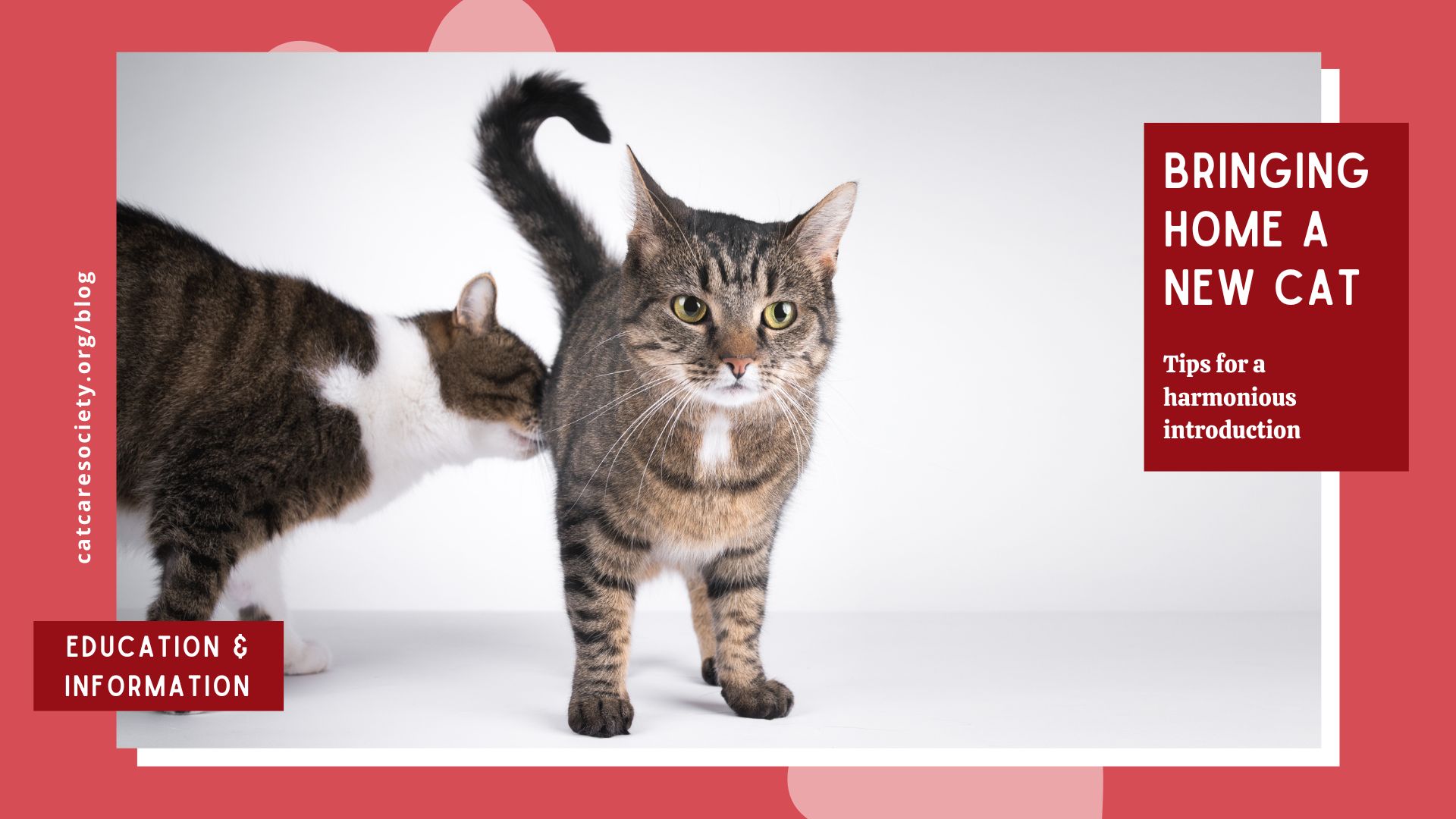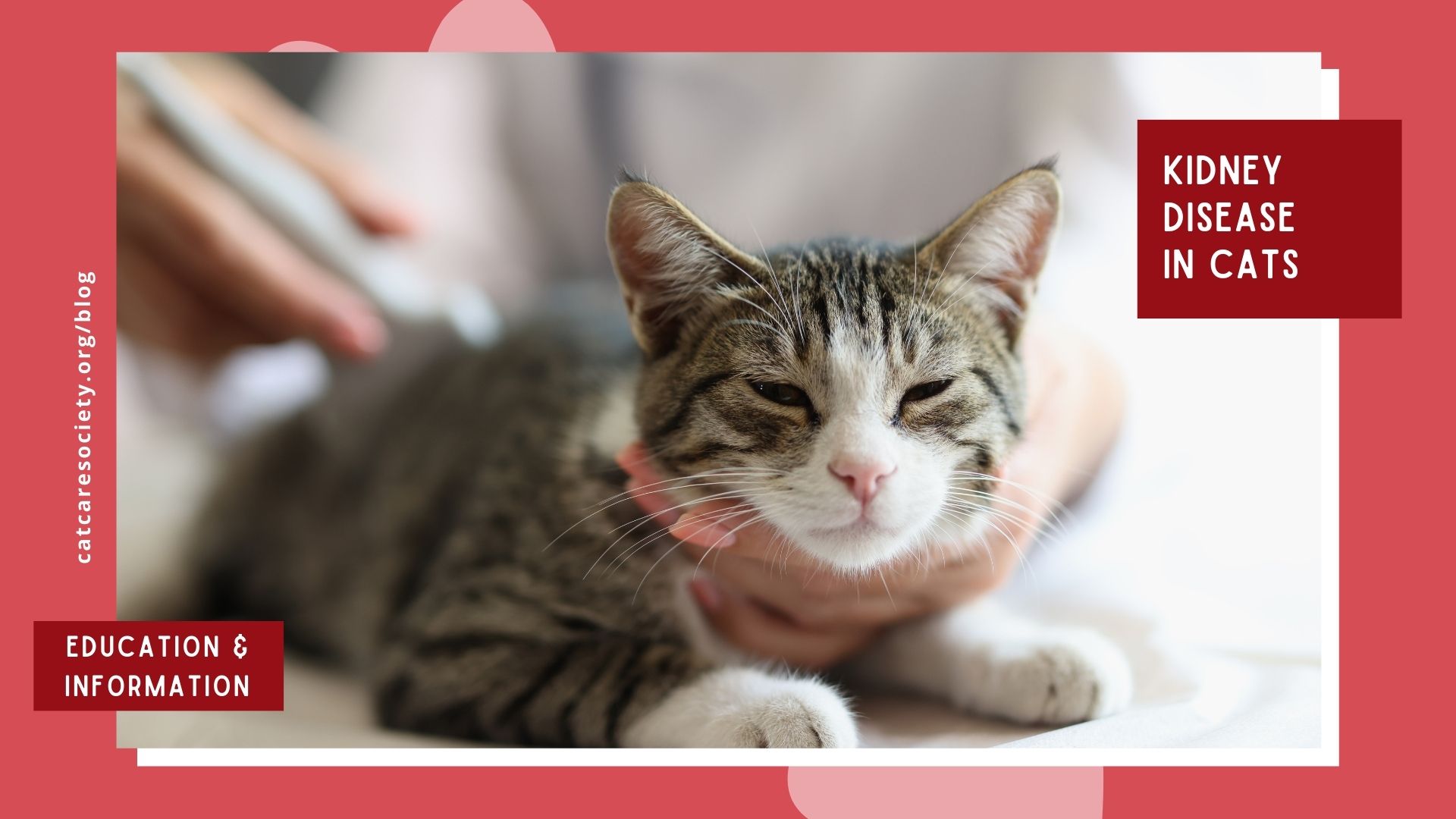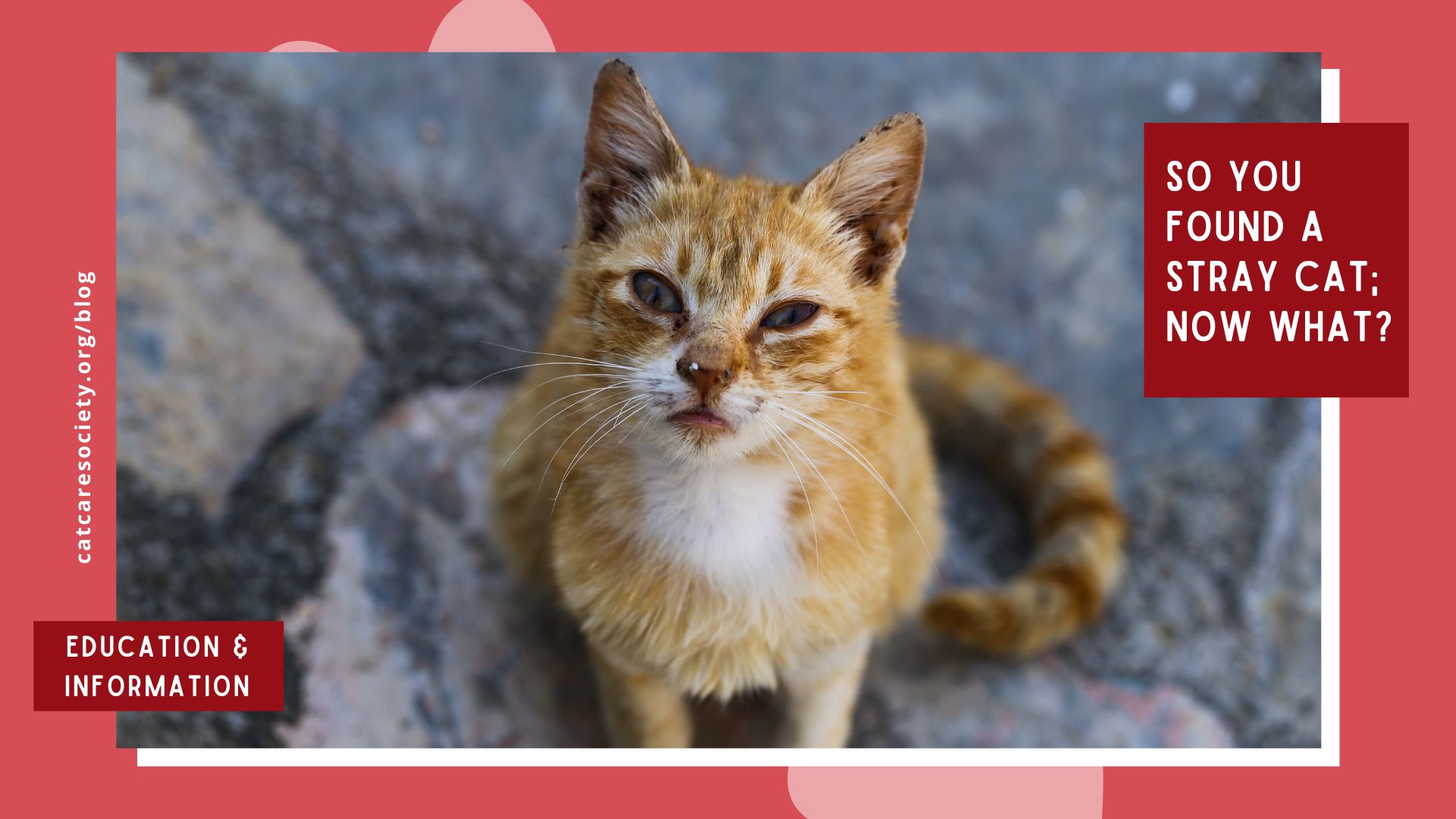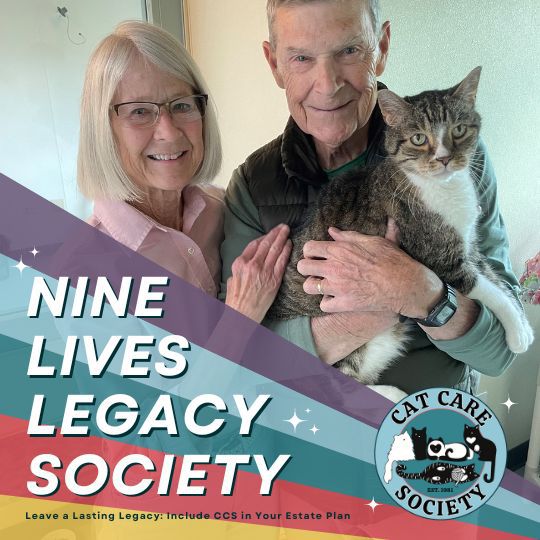Looking for information on FeLV? Read our companion blog post here!
Perhaps you’re considering adopting a new kitty companion, but the catch is, the one who caught your eye has FIV. Or maybe your existing pet was just diagnosed and you’re wondering what this means for his or her life — and yours. You’ve come to the right place. Here’s some information to help you figure out what to expect.
FIV vs. FeLV: An Overview & History
You may often hear the terms FIV (Feline Immunodeficiency Virus) and FeLV (Feline Leukemia Virus) lumped together. This is because these two conditions are both retroviruses. Retroviruses are RNA viruses that have the ability to make a complementary DNA copy of the viral RNA, which is then integrated into a host cell’s DNA. Both viruses weaken a cat’s immune system, and can be transmitted from cat to cat only. However, FIV and FeLV are very different in terms of how they affect a cat’s life.
FIV is an infectious virus similar to HIV in people — which is why you may hear it called Feline AIDS — but is unique to cats. It’s estimated that about 3-5% of cats are FIV positive (FIV+).
FIV was once a terrifying diagnosis, and many shelters used to euthanize cats who tested positive for the virus. We believed that FIV would negatively impact a cat’s quality of life and chances of adoption. However, much new research indicates that cats with FIV can actually live a relatively normal, full life. Unfortunately, the same cannot be said for FeLV.
There is currently no cure for either virus. Treatment and supportive care are aimed at treating secondary complications that these viruses can cause. Currently, there is no commercially available vaccine for FIV. The original FIV vaccine has not been available since 2016 and can interfere with FIV test results, causing false positives. (There is, however, a vaccine available for FeLV.)
How Do Cats Get FIV?
FIV used to be thought of as the “fighting disease,” Dr. Cecily Palamara, CCS’ chief veterinarian, recalls. It’s a disease that cats spread to each other, usually via deep bite wounds, and is most often transmitted through the saliva of an infected cat. Less commonly, it can also be passed through infected milk, infected blood transfusion, or in utero from a pregnant cat.
In most cases, even if cats don’t get along in a household, they rarely bite hard or deep enough to transmit the infection. They typically will hiss, scratch or give warning bites that don’t break the skin. For this reason, cats in socially stable, multi-cat households have a much lower risk of disease transmission than we previously thought. It’s important to talk with your veterinarian about the risks of your specific situation prior to adopting or bringing an FIV+ cat into a home with FIV negative cats.
Cornell says that casual, non-aggressive contact, such as sharing water bowls or a litter box or mutual grooming, is not an efficient route of spreading the virus.
Both FIV and FeLV are diagnosed through a blood test. After exposure, a cat usually takes between two to six months to test positive for FIV, but can test positive as early as one month after FeLV exposure. Some very young kittens or already vaccinated adult cats can present false positive FIV tests. This is why we do not test kittens for it, as maternal antibodies may interfere with the results. It can take up to four to six months for these antibodies to go away. However, kittens can be tested for FeLV with much less risk of a false positive result due to the type of testing that is used.
Will My Other Pets or I Contract FIV?
FIV is a virus unique to cats. Neither humans nor dogs can get it. However, other cats may get it from another FIV+ cat, though chances are slim. We now know that FIV cats can co-exist with other healthy cats with few to no issues, as long as they are living in a socially stable household in which fighting is rare to non-existent.
The disease also easily dies in the environment, so don’t fear it lingering in your carpet or carrying it on your clothes.
How Will FIV Affect My Cat?
FIV may be a significant virus, but cats can live a relatively normal life with it. Because it comprises their immune system, they are more susceptible and vulnerable to other diseases.
If your FIV+ cat gets sick with something else, such as an infection, cancer or other acquired disease, they may not respond as well to traditional treatments like a cat without FIV. If he or she needs surgery or treatment, healing and recovery can be hindered by a weakened immune system and may result in more complications.
The good news is that for the most part, FIV positive cats can live relatively normal lives and enjoy all of the things that a regular cat does. It is recommended that FIV positive cats remain indoor-only cats to prevent further spread of the virus. FIV is certainly not a death sentence, and your FIV cat has a relatively good chance of living a long, happy and healthy life!
Some veterinarians recommend twice yearly exams for FIV positive cats in order to pick up on other complicating factors and treat them as soon as possible. The Humane Society of the U.S. says that cats with an FIV diagnosis can remain asymptomatic for years or even their entire lives. It’s important to talk with your veterinarian about their recommendations prior to adopting an FIV positive cat.
@catcaresociety Replying to @Angel ???? What is FIV and how does it affect cats? #fiv #felineimmunodeficiencyvirus #fivcat #fivcatsoftiktok #thingstododenver #colorado #adoptdontshop #catshelters ♬ Safari/Wildlife/African Video Background_"Kids in the Jungle"_Animals/Zoo/Rainforest/National Park/Playful/Fun/Cheerful(1327305) – Ney
How Does CCS Handle FIV+ Cats?
Even though FIV cats may be just fine with other cats, at Cat Care Society, we are still separating them because we have the space and ability to do so.
In a shelter setting, cats are more prone to pick up things from other cats coming in and out. Therefore, we take extra precautions to isolate our FIV cats in their own room to minimize risk. FIV+ cats can have concurrent feline stomatitis (severe inflammation of the tissues of the mouth) and have a higher risk for complications after surgeries. Additionally, FIV cats may have a harder time healing from an upper respiratory infection or other infection that we commonly see in the shelter environment. And because we take in many cats with special medical needs, that’s why financial donations are so helpful.
Our goal is to maintain or improve an FIV positive cat’s quality of life, prevent secondary complications of the virus, and prevent transmission to other cats while in the care of CCS.
Can an FIV Cat Live with Other Cats?
If you have other healthy cats and are considering adding an FIV cat to your family, we recommend you speak with your veterinarian first to discuss the risk factors for your individual situation. This is the person you would be relying on to help you manage your cat’s FIV long-term, so their input and expertise on your specific situation does carry some weight.
The general consensus in the animal medical community is that FIV+ and non-FIV cats can live together as long as everyone is spayed or neutered, remains indoors and interacts peacefully.
Should I Adopt a Cat with FIV?
While this decision is of course up to you, we kindly ask that you consider adopting any cat with special needs.
Cats with FIV — and many other medical conditions — may be often overlooked, but we’ve seen that these same cats can be just as loving, playful and worthy as any other cat.
Even some with additional concerns can come around and form beautiful relationships. Take it from Mr. Grey or Big Red and Garfield, two bonded FIV+ boys we had last spring who were adopted together.
@catcaresociety Our FIV+ boys Big Red and Garfield had a rough start here at the shelter. When they first came to us, Garfield showed signs of aggression and wouldn’t let anyone near him, often swatting or hissing at anyone who entered his room. Big Red had issues with the other FIV+ cats and wouldn’t let anyone near him either. With patience and reassurance, CCS staff has been working on socializing them. Together, they learned to trust humans and have done a complete 180 in just a month! Now they greet you when you enter their room, accept pets (especially if rewarded with kitty gogurts) and have grown quite fond of each other. #fyp #catsoftiktok #catcaresociety #adoptdontshop #sheltercat #coloradocats #denver #fureverhome #nonprofit #adoptme #gingercat #orangecat #thingstododenver #denver #fivcat #fivcatsoftiktok ♬ I Think I Like When It Rains – WILLIS
We’re so glad to see others coming around to cats with FIV. On Facebook, Cindi commented: “FIV+ cats are my favorite cats! I always say they have something special in their DNA – an extra love gene. Keep them inside, feed them a healthy diet with regular Vet visits and they will be your buddy for many years! My friend has an FIV+ girl who is 12 years old and going strong!”






4 Responses
I was skeptical at first of adopting my furbaby who has FIV, but I took the chance. She seems happy, and I will say, she loving and such an awesome little girl. Take the leap. They’re just as loving as any other cat
I’m also thinking about adopting an FIV+ cat. I have two cats already that are non-FIV+ and want to make sure they stay safe. I have been reluctant as I don’t want to infect the other two kitties. My question is, do they require some sort of medicine every day? Or weekly? Or monthly? I just want to know what’s involved before I bring this beautiful boy in my home? He’s at a store/shelter next door where I work. He was adopted out and they only kept him for 3 weeks and brought him back. I don’t want to be that person. I either want to bring him here and give him a stable home or hopefully give someone else that opportunity. I feel so bad that he was brought back as he is so darn sweet. He is 4 years old right now and seems to be happy at the store where he is. I go visit this cat twice a day and give him treats, so naturally, he really likes me a lot!
Hi Edyie, we’re so happy to hear you are considering adopting an FIV cat! Cats with FIV do not require medication for FIV itself as there is no treatment for it. However, cats with FIV are more susceptible to other illnesses, in which case they could need medication to treat other symptoms if and as they develop. More than anything, we would urge you to speak with your veterinarian to discuss adding an FIV kitty to your household so you can fully understand the risks (and rewards!), as they would be the primary person helping you navigate everything. Sounds like you found a great kitty, we wish you luck in making your decision!
I have a feral cat that tested positive for FIV, I captured him and sent almost $200 to get him tested and all his shots and Rabies. This cat lets me feed him, will not let me touch him. I would like to re-capture him and hopefully find a place to take him. He is not neutered and I really can’t afford to keep him.
I have an indoor neutered male and he is negative for the virus. I can’t take on another animal.